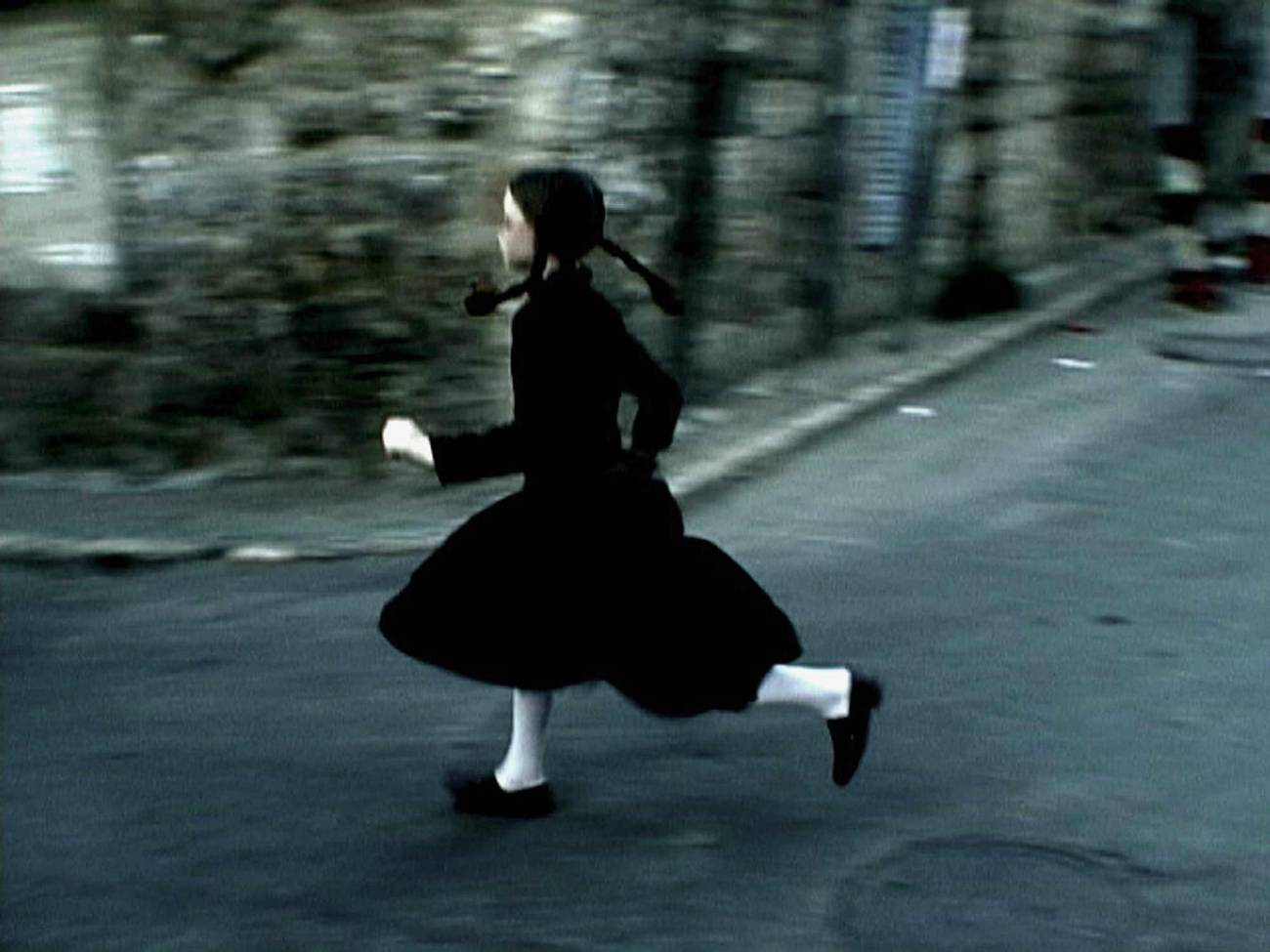 “Mietek” z parczewskiego lasu. Historia z Polski Ludowej
“Mietek” z parczewskiego lasu. Historia z Polski Ludowej
Piotr Osęka
 Dzięki działalności w Gwardii Ludowej i Armii Ludowej Moczar zyskał po wojnie wysoką pozycję w aparacie bezpieczeństwa. Ale też omal nie stało się to przyczyną jego zguby, jako że Stalin nie ufał towarzyszom, którzy podczas wojny znaleźli się na terenach nieobjętych kontrolą radziecką. Na… (Fot. NAC)
Dzięki działalności w Gwardii Ludowej i Armii Ludowej Moczar zyskał po wojnie wysoką pozycję w aparacie bezpieczeństwa. Ale też omal nie stało się to przyczyną jego zguby, jako że Stalin nie ufał towarzyszom, którzy podczas wojny znaleźli się na terenach nieobjętych kontrolą radziecką. Na… (Fot. NAC)
Przez wiele lat Mieczysław Moczar uchodził za jedną z kluczowych osób w komunistycznym aparacie władzy i długo też był podejrzewany, że celuje w urząd najważniejszy – stanowisko przywódcy partii.
W styczniu 1944 r. w obozie partyzanckim pośród Lasów Parczewskich doszło do brzemiennego w skutki wydarzenia. Naprzeciwko siebie stanęli partyzanci z radzieckiego zgrupowania na Polesiu i żołnierze Armii Ludowej. Przybyszami ze Wschodu dowodził przedwojenny polski komunista Leon Kasman wykonujący misję zleconą mu przez Moskwę, natomiast grupą AL-owców komenderował Mieczysław Moczar, 31-letni ambitny działacz PPR. Obaj chcieli, żeby to ten drugi się podporządkował.
Kasman relacjonował po latach: Rozmowa trwała parę godzin. Ja tłumaczyłem, on powtarzał swoje. Nagle wpada jeden z moich ludzi. – Wiesz, co się dzieje? Jesteśmy otoczeni! Mój oddział zajmował niewielkie opuszczone gospodarstwo w samym środku lasu, na polanie, gdzie stał dworek – przyzwoity, wokół ogród i ogromny magazyn. – Ludzie Moczara – usłyszałem – w sile dwudziestu kilku siedzą dookoła dworku z bronią wycelowaną w naszą stronę, a nasi stoją w oknach z automatami przygotowanymi do strzału. Przeraziłem się. Wystarczy, by jeden nerwus puścił salwę i zacznie się rzeź. Sytuacja bez wyjścia .
Z kolei współtowarzysze Moczara zapamiętali, jak odgrażał się pod adresem rannego w nogę Kasmana: “Ja zlikwiduję tego kulasa”. Chociaż ostatecznie nie doszło do rozlewu krwi, zwielokrotnione echa tego konfliktu miały nieraz pobrzmiewać w historii PRL.
Kryptonim “Woron”
Kim był człowiek, który po latach zostanie najpotężniejszym szefem aparatu bezpieczeństwa w komunistycznej Polsce?
Mieczysław Moczar urodził się w grudniu 1913 r. w rodzinie prawosławnego chłopa z Grodzieńszczyzny jako Mikołaj Demko. Jeszcze przed jego narodzinami ojciec przeniósł się do Łodzi, gdzie zarabiał jako robotnik i gdzie związał się też z KPP. Syn poszedł w ojcowskie ślady – po ukończeniu szkoły podstawowej i kursów ślusarskich (na dalszą naukę rodzina nie miała pieniędzy) zatrudnił się w zakładach włókienniczych Eitingona. W 1938 r. został aresztowany i skazany na dwa lata za działalność komunistyczną.
Wyroku w całości nie odsiedział – na początku września 1939 r. strażnicy uciekli przed nadciągającymi Niemcami, a skazańcy wyłamali bramy i wydostali się na wolność. Moczar dotarł do Białegostoku znajdującego się w radzieckiej strefie okupacyjnej, i to właśnie tam rozpoczął się dość tajemniczy i po latach mocno zmitologizowany epizod jego życia. Został komunistycznym agitatorem, a wkrótce potem zwerbował go radziecki wywiad wojskowy. Po odbyciu kursu spadochronowego jako agent o kryptonimie “Woron” został wysłany z poufną misją na tereny zajęte przez Niemców. Niektórzy skłonni byli potem uznawać to wydarzenie za moment zwrotny w karierze przyszłego szefa MSW, jednak – jak się wydaje – na wyrost. Wiele wskazuje na to, że “Woron” był tylko płotką, a jego mocodawcy – o czym się przekonamy – szybko o nim zapomnieli.
Po wybuchu wojny niemiecko-radzieckiej 22 czerwca 1941 r. Demko ponownie trafił do Łodzi, gdzie odnowił kontakty z towarzyszami z ruchu komunistycznego, a po utworzeniu Polskiej Partii Robotniczej został jej członkiem. Kariera nabrała tempa – po kilkunastu miesiącach został komendantem Łódzkiego Obwodu Gwardii Ludowej (późniejszej Armii Ludowej) i w tym też mniej więcej okresie zmienił imię i nazwisko na Mieczysław Moczar – nową tożsamość wybrał ze względów konspiracyjnych, ale już pozostał przy tym nazwisku.
Komendant partyzancki
Jako dowódca partyzancki nie mógł się pochwalić większymi sukcesami, chociaż o swoich umiejętnościach militarnych miał chyba wysokie mniemanie. Zasada “mierz siły na zamiary”, której hołdował, sprawiła, że jego oddział kilka razy znalazł się w naprawdę poważnych tarapatach i tylko kosztem dużych strat zdołał się wyrwać z niemieckiego okrążenia. Świadkowie zapamiętali, że “Mietek”, bo tak brzmiał partyzancki pseudonim Moczara, miał skłonność do lekceważenia niebezpieczeństwa i przeceniania wartości bojowej swojego oddziału. Lubił też wypić, a po alkoholu robił się wyjątkowo brawurowy.
W maju 1944 r. Moczar dostał polecenie, aby przejść z lasów lubelskich w kieleckie – wspominał Antoni Boński, oficer jednego z radzieckich oddziałów partyzanckich, które operowały w tym regionie. – Przypuszczałem, że to polecenie musi być natychmiast wykonane, wiedzieliśmy bowiem, że w Lublinie jest na uzupełnieniu niemiecka dywizja wikingowska [5. Dywizja Pancerna SS “Wiking“]. I tak zakładaliśmy, że jak tylko [ludzie Moczara] się ruszą – co zresztą się stało – to Niemcy pójdą w ślad za oddziałami polskimi. Dlatego tłumaczyłem, towarzysze, zatrzymajcie, pójdziemy wszyscy razem, my też mamy już rozkaz opuszczenia dotychczasowych terenów i przejścia w lasy biłgorajskie czy janowskie. Pójdziemy razem, będziemy wspólnie stanowić większą siłę i większe będą możliwości obrony. Moczar nie usłuchał. Gdyby się nie zatrzymywali, a szli marszem, to niemiecka dywizja tylko przetrzepałaby im tyły, a oni by jakoś przepłynęli. Ale zatrzymali się na odpoczynek. Niemcy ich okrążyli i przetrzepali solidnie. Sami nie mogliśmy im pomóc, bo zostaliśmy odcięci. Wiedzieliśmy o tych bojach i przypuszczaliśmy, że to się skończy krwawo, i tak się stało. Części udało się przedrzeć i poszli dalej, gdzie – na razie o tym nie wiedziałem, a część rozbitków z oddziałów polskich przyszła do nas .
My Żydów nie chcemy
W tym też okresie po raz pierwszy ujawniły się antysemickie uprzedzenia Moczara. Dla “Mietka”, podobnie jak dla przedwojennych endeków, Żydzi stanowili główną przeszkodę na drodze do zgody narodowej. Nie wiem, na jakiej podstawie, ale Moczar motywował i popularyzował pogląd, że rozwinąłby, nie wiem, jakie siły, ale jemu na przeszkodzie stoją Żydzi – relacjonował Boński. – Zapowiadał możliwość zorganizowania wszystkich oddziałów, w tym AK-owskich i innych, we współdziałaniu z partyzantką Armii Ludowej, ale wy macie Żydów – tłumaczył dowódcom oddziałów AK – a my Żydów nie chcemy .
Być może tym właśnie można wytłumaczyć niechęć Moczara do Kasmana – działacza o żydowskich korzeniach, a w dodatku politycznego reprezentanta Moskwy. “Mietek” nie mógł się pogodzić z tym, że na “swoim” terenie musi tolerować intruza, a jeszcze Kasman odmawiał mu dostępu do posiadanej radiostacji, rezerwując sobie na wyłączność kontakty z radzieckim kierownictwem. W dodatku przybyły ze Wschodu oddział był świetnie uzbrojony. Moczar miał chrapkę na karabiny i pistolety maszynowe ludzi Kasmana, uważał, że z ich pomocą odniesie wreszcie upragnione sukcesy na polu walki, lecz musiał się obejść smakiem. Wreszcie konflikt między dwoma komendantami tak bardzo się zaognił, że omal nie doszło do bratobójczej strzelaniny.
Ostatecznie Kasman zgodził się na wcielenie części swoich żołnierzy do oddziału Moczara, ale o incydencie zawiadomił Georgiego Dymitrowa, niedawnego szefa rozwiązanego już przez Stalina Kominternu, czyli międzynarodówki komunistycznej. W kolejnych depeszach oskarżył “Mietka” o celowe utrudnianie mu kontaktu z Warszawą, odmowę podporządkowania się dyrektywom z Moskwy, a nawet o współpracę z Niemcami. Z kolei Moczar informował Władysława Gomułkę i Bolesława Bieruta, że Kasman podsyca konflikt, wstrzymując radzieckie dostawy broni dla AL. Chodziło tu po prostu o władzę, do której pretendowali ci, którzy nie mieli do tego moralnego prawa – napisał później Moczar.
Moczar musi odejść
Nie ulega wątpliwości, że to Kasman cieszył się zaufaniem towarzyszy radzieckich (z czego jego rywal musiał zdawać sobie sprawę). W wewnętrznych raportach określali oni Moczara mianem “młodego partyjniaka” i “prostego robotnika”, stwierdzali, że “nie figuruje w naszej ewidencji”, tym samym przyznając, iż zadania wywiadowcze, które kiedyś wykonywał, musiały być mało istotne. Jak wynika ze sprawozdań kierowanych przez generała NKWD Iwana Sierowa na ręce Ławrientija Berii, Moskwa w żaden sposób nie kontrolowała “Mietka” ani nie traktowała jako “swojego”.
Rywalizację Moczara z Kasmanem zakończyła ostatecznie decyzja kierownictwa PPR, które nakazało Moczarowi opuścić dotychczasowy rewir i objąć stanowisko dowódcy III Obwodu AL na Kielecczyźnie. Musiał wykonać to polecenie, ale z pewnością nie przyszło mu to łatwo. Jako żołnierz i – we własnym mniemaniu – bohater walk z Niemcami czuł się poniżony, ustępując cywilowi, który swoją pozycję zawdzięcza kontaktom politycznym. Incydent w Lasach Parczewskich miał głębsze znaczenie, wykraczające daleko poza osobiste animozje dwóch działaczy komunistycznych. W istocie stanowił pierwszy symptom zasadniczego rozłamu wewnątrz elity partyjnej, który trwać będzie aż do ostatecznej rozgrywki w 1968 r.
Łódzki ubek
Kolejnym przystankiem w karierze “Mietka” okazało się objęcie stanowiska szefa Wojewódzkiego Urzędu Bezpieczeństwa Publicznego w Łodzi w styczniu 1945 r. Awans na jedno z kluczowych wówczas stanowisk w aparacie bezpieczeństwa (Łódź oprócz Lublina pełniła funkcję drugiej stolicy Polski) zawdzięczał zapewne dobrym relacjom z Gomułką, sekretarzem generalnym PPR. Nie bez znaczenia były również jego umiejętności nabyte podczas walk w lesie; przełożeni liczyli na to, że “jako były oficer Armii Ludowej będzie służył swoim doświadczeniem z walk partyzanckich w przeprowadzaniu operacji bojowych związanych z likwidacją walk dywersyjnych”.
Istotnie, na terenie województwa łódzkiego działało silne podziemie antykomunistyczne, a solą w oku kierownictwa PPR partii było zwłaszcza zgrupowanie Stanisława Sojczyńskiego “Warszyca” liczące 3-6 tys. żołnierzy. Partyzanci atakowali lokalne komitety PPR, posterunki MO i UB, opóźniając i paraliżując budowę struktur nowej władzy.
Z powierzonego mu zadania Moczar wywiązał się wzorowo, odnosząc – pierwszy i ostatni w swojej karierze – istotny sukces militarny. Na przełomie wiosny i lata 1946 r. kierowana przez niego grupa operacyjna zdołała rozbić oddziały “Warszyca”, a jego samego wziąć do niewoli. Również jako szef wojewódzkiego UB wykazał się skutecznością w likwidowaniu legalnej opozycji i umacnianiu komunistycznej dyktatury. Nadzorował aresztowania wśród członków PSL, pilnował “właściwego” przebiegu najpierw referendum (30 czerwca 1946 r.), a później wyborów z 19 stycznia 1947 r. Hołdował zasadzie obowiązującej w całym aparacie bezpieczeństwa, że w walce z reakcją nie ma miejsca na wahania i “drobnomieszczańskie skrupuły”. “Jeśli masz wątpliwości – mówił współpracownikom – co do jednej z trzech osób, to lepiej zamknąć wszystkie, niż ryzykować, że podejrzany może się wymknąć”.
Prawdopodobnie Moczar nigdy osobiście nie uczestniczył w przesłuchaniu ani nie bił ujętych działaczy podziemia. Nie musiał – brudną robotę wykonywali za niego podwładni – ale nie mógł nie wiedzieć, jakimi metodami wydobywa się w śledztwie zeznania. Jak pisał Krzysztof Lesiakowski, biograf Moczara, do “zmiękczania” aresztowanych stosowano “moczarnię”. Była to znajdująca się w piwnicach gmachu UB ciemnica o wymiarach metr na metr, licząca również metr wysokości, wypełniona do połowy wodą. W takim pomieszczeniu oporny więzień zmuszony był do przebywania przez co najmniej 48 godzin .
Brak skrupułów był koniecznym, ale niejedynym warunkiem kariery w aparacie bezpieczeństwa. Nieodzowne było także bezwarunkowe posłuszeństwo wobec przełożonych, ale w tej kwestii na przeszkodzie stały ambicje Moczara. Do Warszawy dotarły skargi, że szef WUBP z lekceważeniem wypowiada się o radzieckich doradcach, a jeden ze współpracowników Moczara zeznawał potem: W końcu 1946 r., gdy byłem na odprawie w WUBP, po jej zakończeniu udałem się z płk. Moczarem do jego gabinetu, gdzie miałem omawiać sprawę por. Szarały, który był w tym czasie szefem PUBP w Skierniewicach. Gdy znajdowałem się w gabinecie, wszedł oficer Armii Czerwonej i zwrócił się do Moczara z jakimś zapytaniem, na co Moczar odpowiedział: “dobrze”, a następnie, gdy ten wyszedł, powiedział do mnie: “Ta cholera mi przeszkadza i nic nie mogę zrobić, po cholerę tu u nas oni siedzą” .
Związek Radziecki jest naszą ojczyzną
Tymczasem klimat polityczny w Polsce zaczynał się zmieniać. Na szczycie partii komunistycznej dojrzewał konflikt między krajowcami, którzy okupację spędzili w partyzantce i konspiracji, a Moskalami, którzy przybyli w 1944 r. wraz z Armią Czerwoną. Moskale cieszyli się poparciem i zaufaniem Stalina, co w oczywisty sposób przesądzało o ich zwycięstwie w tej rywalizacji. Pod naciskiem Moskwy kierownictwa PPR i aparatu bezpieczeństwa rozpoczęły przygotowania do czystki w elitach władzy. Będzie się ona odbywać pod hasłem “walki z odchyleniem prawicowo-nacjonalistycznym”, jakiemu ulec mieli Gomułka i jego otoczenie. W tym także Moczar, który w 1947 r. został mianowany generałem i stał się jedną z czołowych postaci w środowisku krajowców.
Kiedy w czerwcu następnego roku “Mietka” odwołano z Łodzi i powierzono mu stanowisko wiceministra bezpieczeństwa publicznego w Warszawie, czuł zapewne, że jest to dwuznaczny awans i zbierają się nad nim ciemne chmury. W Warszawie, oddalony od swoich współpracowników i podkomendnych jeszcze z czasów partyzanckich, stał się łatwą ofiarą. Latem 1948 r. rozpoczęły się przesłuchania przed Centralną Komisją Kontroli Partyjnej, która drążyła kwestie jego antyradzieckich wypowiedzi, antysemityzmu i “ciągot nacjonalistycznych”.
Moczar początkowo odrzucał zarzuty jako bezzasadne, ale wkrótce uświadomił sobie, że stoi na przegranej pozycji, a gra toczy się o najwyższą stawkę. 28 sierpnia, trzy dni przed Plenum KC PPR, które pozbawi Gomułkę szefostwa w partii, na ręce Biura Politycznego złożył samokrytykę. Odciął się w niej od Gomułki. “Sentyment dla człowieka jest ludzkim objawem, lecz droższa jest dla mnie nasza idea i z nią będę maszerował” – przyznał się do błędnej oceny sytuacji. A nade wszystko solennie wyrzekł się swoich wcześniejszych poglądów: “Związek Radziecki nie jest tylko naszym sojusznikiem, to jest powiedziane dla narodu. Dla nas, partyjniaków, Związek Radziecki jest naszą ojczyzną, a granic naszych nie jestem w stanie dziś określić; dziś są za Berlinem, a jutro będą za Gibraltarem”.
Wiemy, że wystąpienie to wymusił na nim Roman Zambrowski, jeden z czołowych polityków z kręgu Moskali. Moczar został przez niego kilka dni wcześniej wezwany na rozmowę i zbesztany. Zambrowski oświadczył, że decyzją Biura Politycznego Moczar zostanie usunięty z aparatu bezpieczeństwa i skierowany na drugorzędne stanowisko sekretarza partii w Olsztynie. Samokrytyka miała być ceną za zachowane wolności.
W pewnym sensie Moczarowi udało się wyjść obronną ręką. Przetrwał czystkę, nie trafił do więzienia jak Gomułka i wielu jego współpracowników. Nadal zajmował stanowisko w szeroko rozumianej elicie władzy – choć na jej peryferiach i pozbawione realnego znaczenia. Jednak dla oficera i byłego partyzanta był to cios boleśniejszy niż finał konfliktu z Kasmanem. Musiał skapitulować i się ukorzyć, a sprawcą jego upokorzenia znów był namaszczony przez Moskwę dygnitarz żydowskiego pochodzenia. Moczar nie zamierzał puścić zniewagi płazem i gotów był cierpliwie czekać na okazję do zemsty.
Korzystałem m.in. z książki Krzysztofa Lesiakowskiego, “Mieczysław Moczar Mietek . Biografia polityczna”, Warszawa 1998
Zawartość publikowanych artykułów i materiałów nie reprezentuje poglądów ani opinii Reunion’68,
ani też webmastera Blogu Reunion’68, chyba ze jest to wyraźnie zaznaczone.
Twoje uwagi, linki, własne artykuły lub wiadomości prześlij na adres:
webmaster@reunion68.com





